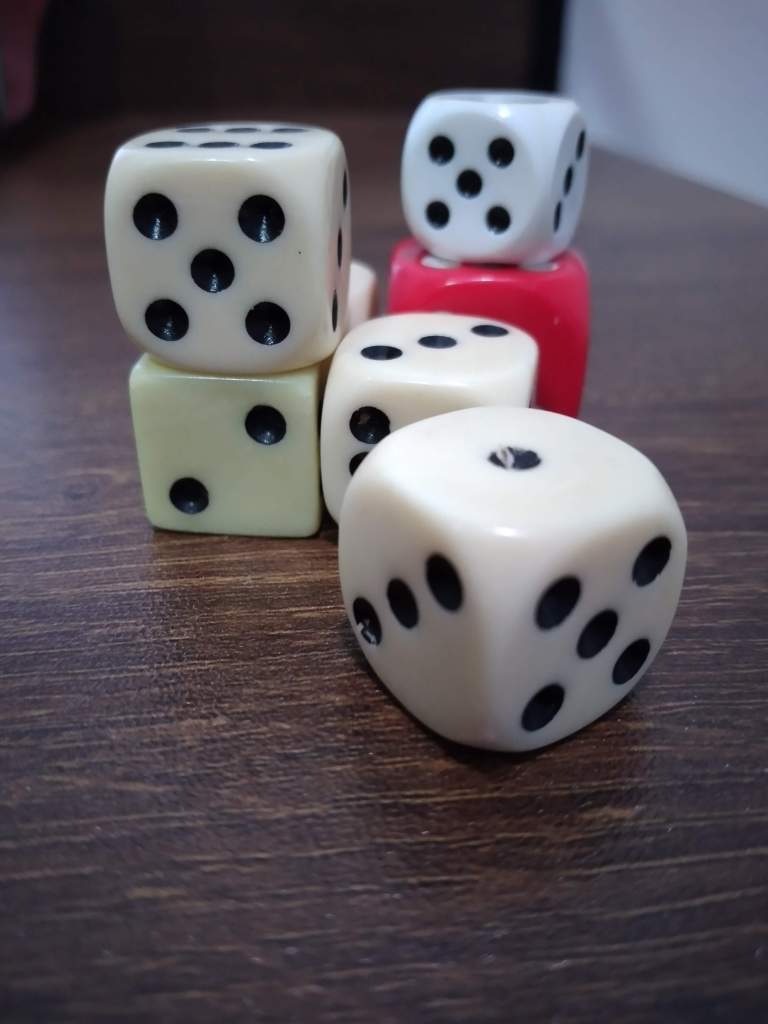
How your brain creates your reality, and making this work for you
You may or may not identify as an organised person, but your brain loves organising, categorising and finding patterns. This allows it to make predictions and build your own personal reality.
The organised brain
Humans are hard-wired to see patterns and organise things into categories. The brain comes across so much information every day, if it wasn’t a whiz at organising everything, we would be overwhelmed. Categories give us a way to make a fast judgement: is this thing or person likely to be safe, useful, fun? etc. As well as saving energy and time, this can be life-saving.
 'Things that go' - our brains organise information into categories
'Things that go' - our brains organise information into categories
The individual brain
The brain takes incoming information and makes a theory about what it means. People who share the same culture are more likely to agree on meaning and categories. Is the sea for fun, sports and relaxation, or a source of food and livelihood? Your answer may depend on the culture you were born into. Additionally, each person's individual life experiences give them a unique perspective. Categories are also flexible depending on context: a car key could move to the category of 'weapon' or 'tool to open a package'. Our mood at the time could influence how we categorise, and in the same way the category we place something in could change our mood. During categorisation, parts of the brain involved with emotion are often activated at least as much as those involved with purely receiving data, like light or taste. A ring could be categorised positively, as a connection to a loved-one, or a painful reminder of a lost love, or a frustrating symbol of being trapped.The ring is a ring, it has no meaning of its own: it is the meaning that we give it that matters.
 Is the sea your playground or your place of work? The answer depends on you, not the sea
Is the sea your playground or your place of work? The answer depends on you, not the sea
Individual meaning-making is one of the reasons that as a transformational coach I am careful to stick to observations and enquiries, rather than deductions and assumptions. The sea, key, ring, and likewise the problem, goal, or relationship are meaningless without the personalised meaning you apply. At the same time you might not even realise you have made your own interpretation. Often if feels as though we have simply perceived reality. When the transformation coach enquires about meaning, it brings the act of 'meaning-making' to conscious awareness. This enables you to learn about yourself, to understand what drives your perspective, and frees you to make new meanings.
I think perception to be like a science: a process of constructing theories given the available evidence"
DONALD HOFFMAN, COGNITIVE SCIENTIST
The scientist brain
In The case against reality: How evolution hid the truth from our eyes, Donald Hoffman writes: "I think perception to be like a science: a process of constructing theories given the available evidence." The brain, locked inside your skull, takes information, such as the pattern of light hitting the photoreceptor, and makes a theory about what is going on in the world, such as, "I'm seeing a delicious red apple." However, like any theory, it can be wrong. But like any scientist, the brain can become attached to its theory, paying more attention to evidence that supports it than contradicts it. Proper scientists know this is an issue and so include something in the research method to stop themselves doing it. The brain tends not to.
 A beautiful scene: or in other words, a bunch of molecules that your eye records in terms of photons, which the rest of your brain interprets as a beautiful scene.
A beautiful scene: or in other words, a bunch of molecules that your eye records in terms of photons, which the rest of your brain interprets as a beautiful scene.
Fooling the brain
Starting with incoming sensory information, the brain quickly combines it with additional information gathered from elsewhere in the body and the brain, to generate predictions and set expectations. These expectations can override the incoming, neutral, sensory information. For example, a study found that the same food (frozen pureed salmon) was strongly disliked if people were told it was ice cream, but not when it was called ‘frozen savoury mousse’. People also rated it higher for saltiness and savoury flavour if they expected ice cream compared to savoury mousse. It wasn’t the components of the food itself that most predicted taste and enjoyment, but the expectations that were formed based on the brain's category for ‘ice cream’. Similarly, the neuroscientist and psychologist, Lisa Feldman Barrett frequently recounts the fun she had with guests at her daughter’s birthday party, presenting them with food smeared onto baby nappies: even though the guests knew it was food, they couldn’t bring themselves to touch it and several people actually gagged and retched. The meaning that their brain applied given the context of the nappy was strong enough to override the rest of the sensory information, of normal looking, smelling and tasting food.
 Taking in the scenery: It seems like we are seeing reality but according to Francis Crick of DNA fame, "seeing is an active, constructive process... what we see is a symbolic interpretation of the world... in fact we have no direct knowledge of objects in the world"
Taking in the scenery: It seems like we are seeing reality but according to Francis Crick of DNA fame, "seeing is an active, constructive process... what we see is a symbolic interpretation of the world... in fact we have no direct knowledge of objects in the world"
The arrogant brain?
Unfortunately the brain doesn't always accept its mistakes. In fact, there is a phenomenon called ‘confirmation bias’, where the brain actively seeks information to support its predictions, whether they are right or wrong: we see what we expect to see. The tendency towards categorising, predictions and confirmation bias can be unhelpful, for example contributing to prejudice or unhelpful, 'sticky' thought patterns such as those associated with depression. On the other hand, it can also be seen in certain attitudes like optimism; we see positive things if we expect to (also known as looking through ‘rose-tinted glasses’). But if an optimist’s expectations lead to predictions that are wrong, and confirmation bias leads them to double down on them, is that a problem? Not necessarily. It might even be helpful if it keeps mood lifted enough that you can take action and move forward. Also, as I’ve mentioned in a previous post, optimists usually do pay attention to negative information, like health risks, if it is relevant, but won’t overly focus on it if it is not.
The reward-seeking brain
The brain’s fondness for patterns can be seen in research using MRI machines: identifying a pattern activates the same part of the brain as experiencing a reward. As well as using patterns to theorise what is happening now, the brain also likes to use patterns to make predictions about what is going to happen next: "If this, then that." Sometimes life is random, just a roll of dice, but our minds are motivated to find a pattern and make a prediction anyway. The problem is that sometimes the brain quickly draws a conclusion using so-called evidence that may not have much to do with this unique experience that you are facing right now, and more to do with the uncomfortably hot temperature in this room, what your ex-boyfriend told you last year, your pre-existing belief about a 'common sense approach' etc. And this process is often unconscious, which can leave it outside of our control.

So the first step to bring it into your control is to be aware of what's happening so you can be more intentional. It might be difficult in the moment to understand what exactly is influencing your interpretation (although outside of that moment, coaching can help you get more clarity on this, and the method I use explores 'in the moment' experience too), but just knowing that it's happening can support you to apply or let go of those interpretations or predictions depending on how useful they are. Categories are not facts - whether they are formed consciously or unconsciously they are just for convenience and they can change depending on the filter you're using. Interpretations are not facts, they are theories based on a particular perspective, using 'evidence' which in itself may have been an interpretation rather than a fact. Your thoughts themselves are not facts. The values and beliefs we hold are related to this tendency of pattern and prediction making. They are not facts either. Acknowledging this empowers us to hold onto what is useful right now and let go of what is not useful.
When our banana tree unexpectedly produced a bumper crop of bananas long after we'd given up all hope, we quickly re-categorised the bananas from 'reasons to not bother trying' to 'reasons to be hopeful' and used that as the basis of a new belief that 'things will work out in the end'. This gave us a sense of positivity and hope, spurring us on to take positive actions that we otherwise might not have. Looking at it this way was useful and actually led to good things happening. But it was only useful so long as we didn't take that prediction as a fact, because this could have led to unmet expectations, disappointment and our motivation taking a hit. Buddhist philosophy teaches to expect and accept any outcome. I think that people have a natural tendency to make predictions, but having acknowledged that they are just predictions, not fact, we can make them work for us in the short term (eg to motivate), but not become attached to them: in spite of what our brains tell us, life is unpredictable.
 Our little banana tree transformed itself from the category of 'reasons to not bother ever trying' to a symbol of hope and unexpected success
Our little banana tree transformed itself from the category of 'reasons to not bother ever trying' to a symbol of hope and unexpected success
The free brain
The way we categorise and interpret our world can literally shape our lives. It might seem unnerving that when we think we are perceiving reality, our brain is actually constructing our own ‘reality’. But, in another example of how the way we interpret is so important, we can instead see it as freedom. We can choose how we interpret what comes our way. Perception and mindset actively shape our experiences and our response, above and beyond any so-called objective reality. I want to add really clearly that this is not saying you are creating your own problems with your unhelpful interpretations. It is ok to interpret something as crap. Some things are. And I've had enough clients turn up telling me they are stuck because they've been telling themselves to reinterpret something more positively but it's not working, to know that you can't force yourself to see something you don't see. But there will be times when just being able to pause and gain conscious awareness of an interpretation you didn't know you'd made will be enough - even if you decide to stick with your interpretation. The transformational coaching method can help by supporting the client to create distance from the situation, allowing a new perspective and a mindset shift. Having done this, you don't need your coach to give you solutions or advice. You know what to do next (If you are interested in transformational coaching click here or get in touch with me).
So our expectations influence what we taste and what we see, more than the molecules and photons themselves. The predictions our brains make influence our experience more than the reality. The way we interpret or apply meaning to objects and events that we come across shapes how we categorise them, how they exist in our world, and how we exist in our world. All of these things influence our behavioural and emotional responses. There will often be things that we cannot control in life, but we can control how we interpret things, and this gives us the ability to change our own reality.
Hoffman, D. (2019) The case against reality: How evolution hid the truth from our eyes. UK: Penguin
Konovalov, A. and Krajbich, I. ‘Neurocomputational Dynamics of Sequence Learning’. Neuron, 2018
Yeomans, M., Chambers, L., Blumenthal, H. and Blake, A. (2008). The role of expectancy in sensory and hedonic evaluation: The case of smoked salmon ice-cream. Food Quality and Preference
